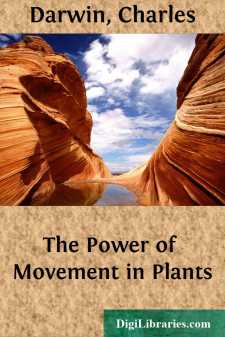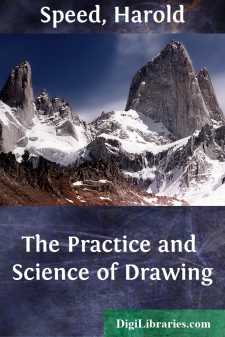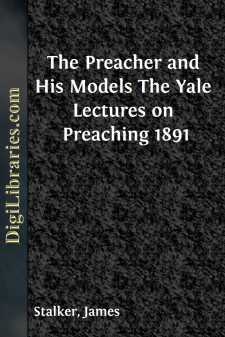Non-Classifiable
- Non-Classifiable 1768
Non-Classifiable Books
Sort by:
by:
Charles Darwin
INTRODUCTION. THE chief object of the present work is to describe and connect together several large classes of movement, common to almost all plants. The most widely prevalent movement is essentially of the same nature as that of the stem of a climbing plant, which bends successively to all points of the compass, so that the tip revolves. This movement has been called by Sachs "revolving...
more...
by:
Samuel McHarry
When I first entered on the business of Distilling, I was totally unacquainted with it. I was even so ignorant of the process, as not to know that fermentation was necessary, in producing spirits from grain. I had no idea that fire being put under a still, which, when hot enough, would raise a vapour; or that vapour when raised, could be condensed by a worm or tube passing through water into a liquid...
more...
by:
Harold Speed
IINTRODUCTION The best things in an artist's work are so much a matter of intuition, that there is much to be said for the point of view that would altogether discourage intellectual inquiry into artistic phenomena on the part of the artist. Intuitions are shy things and apt to disappear if looked into too closely. And there is undoubtedly a danger that too much knowledge and training may supplant...
more...
CHAPTER I THE CLINIC OF EMILE COUÉ The clinic of Emile Coué, where Induced Autosuggestion is applied to the treatment of disease, is situated in a pleasant garden attached to his house at the quiet end of the rue Jeanne d'Arc in Nancy. It was here that I visited him in the early summer of 1921, and had the pleasure for the first time of witnessing one of his consultations. We entered the garden...
more...
by:
James Stalker
LECTURE I. INTRODUCTORY. Gentlemen, it would be impossible to begin this course of lectures without expressing my acknowledgments to the Theological Faculty of this University for the great honour they have done me by inviting me to occupy this position. When I look over the list of my predecessors and observe that it includes such names as Bishop Simpson, Henry Ward Beecher, Dr. John Hall, Dr. W.M....
more...
by:
Andre Dacier
INTRODUCTION André Dacier's Poëtique d'Aristote Traduite en François avec des Remarques was published in Paris in 1692. His translation of Horace with critical remarks (1681-1689) had helped to establish his reputation in both France and England. Dryden, for example, borrowed from it extensively in his Discourse Concerning the Original and Progress of Satire (1693). No doubt this earlier...
more...
THE PRICE OF A SOUL The fact that Christ dealt with this subject is proof conclusive that it is important, for He never dealt with trivial things. When Christ focused attention upon a theme it was because it was worthy of consideration—and Christ weighed the soul. He presented the subject, too, with surpassing force; no one will ever add emphasis to what He said. He understood the value of the...
more...
INTRODUCTION To most of us who have read of the early history of Virginia only in our school histories, Pocahontas is merely a figure in one dramatic scene—her rescue of John Smith. We see her in one mental picture only, kneeling beside the prostrate Englishman, her uplifted hands warding off the descending tomahawk. By chance I began to read more about the settlement of the English at Jamestown and...
more...
CHAPTER I. Introductory. The object of the husbandman, like that of men engaged in other avocations, is profit; and like other men the farmer may expect success proportionate to the skill, care, judgment and perseverance with which his operations are conducted. The better policy of farmers generally, is to make stock husbandry in some one or more of its departments a leading aim—that is to say, while...
more...
CHAPTER I. THE WHISTLE. It was a bright, welcome holiday to little Benjamin Franklin, when his kind parents put some coppers into his pocket, to spend as he saw fit. Possibly it was the first time he was ever permitted to go out alone into the streets of Boston with money to spend for his own pleasure; for he was now but seven years old. "Can I have more coppers when these are gone?" he...
more...











